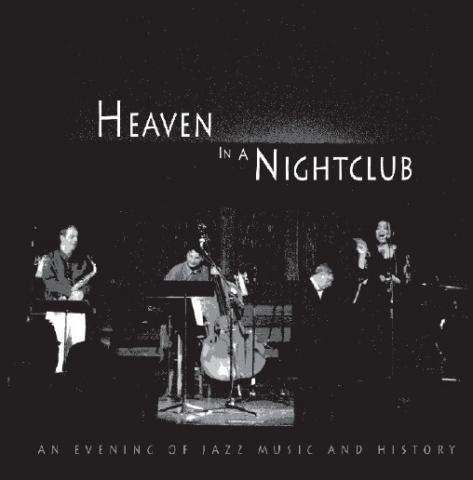“Of all the buildings on Cornell’s sprawling campus, Sage Chapel is surely one of the most beautiful, and most strange–a neo-gothic tribute to religion and education crammed with stained glass (the twelve apostles of the New Testament) and glittering mosaics (the nine muses of Greek mythology). Its first Sunday service in 1875, the Ithaca Journal archly observed, ‘discomforted those carping individuals whose daily nourishment seems to come from finding atheistic evidence in the university.’ Well, over the years those carping individuals, whoever they were, have been well fed. Today Cornell is indisputably and thoroughly secular. Sage Chapel stands as a quaint reminder of how difficult it is to sustain a Christian presence in the center of a research university. The muses seem to have carried the day.” –Andy Crouch ’90
Chesterton House, founded in 2000 as a cooperative effort among a number of pastors, professors and campus ministry workers, is a Christian Study Center designed precisely to address this challenge of sustaining Christian presence at Cornell.
Early Pre-History
Chesterton House has several ‘tributaries,’ the first of which is the small but potent community of Christian scholars at Cornell. For thirty years, Professor Richard Baer, Jr. taught Religion, Ethics, and the Environment, a popular course that included readings from Wendell Berry, Reinhold Niebuhr, and St. Paul. For his unique ability to articulate the relevance of faith for public life, Crouch has described Baer as a living legend among Christian Cornell alumni. Bob Fay, Professor Emeritus of Chemistry, provided an articulate voice on issues of faith and science for a generation of students, as did colleague Hugh Gauch, Jr., Senior Research Specialist in Soil and Crop Sciences.
In the late 60s early 70s, the Graduate Christian Forum began inviting Christian speakers such as Tom Skinner, Richard Mouw, and Arthur Holmes. When Chesterton House founding director Karl Johnson was an undergraduate student in the 1980s, the Forum was still active and advised by Prof. Fay. Historian Mark Noll gave a particularly memorable and inspiring Staley Distinguished Christian Scholar Lecture, modeling the type of ‘integrative’ scholarship that he and others would soon make much better known.
Christian scholarship and community in the 1990s
Upon graduating from Cornell in 1989, Karl, along with graduate student Ray Zimmerman and a few others, began a small ‘intentional Christian community’ at 201 Stewart Ave. The community was characterized by daily prayer, community meals, and ‘living simply.’ This was not the first such community at Cornell (in 1971 Marty Root, Gene Chase and others started The Rock at 325 Dryden Rd.; in later years, a Maranatha House community was associated with Faith Bible Church). It was the community on Stewart Ave., however, that served as a midwife of sorts to a number of other groups that remain active today. Graduate student Jay Sutherland, for example, led the first Graduate Christian Fellowship (GCF) Bible studies in the house. In 1992, the house became a community of Christian women at the initiative of Karl’s sister Edith Johnson. When Ard Louis and others started Cornell International Christian Fellowship (CICF) in 1994, many meetings and meals were held at the house, and later also at Crossroads Life Center, one block away on Buffalo St. (Ard, now a Chesterton House advisory board member, is very involved with Developing a Christian Mind at Oxford.) The original community at Stewart Ave. also served many years later as the model for the Chesterton House residential ministry.
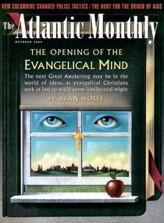
In the mid-1990s, just as Karl was beginning graduate studies under Prof. Baer, there was a sudden burst of interest in “Christian scholarship” and “thinking Christianly,” as evidenced by a flurry of new publications and organizations. Mars Hill Audio got started in 1993, and re:generation Quarterly and Books & Culture commenced two years later. Noll’s Scandal of the Evangelical Mind also appeared in 1995, and George Marsden’s The Outrageous Idea of Christian Scholarship in 1998. In October 2000, Jewish sociologist Alan Wolfe captured the moment in an Atlantic Monthly cover article entitled “The Opening of the Evangelical Mind”.
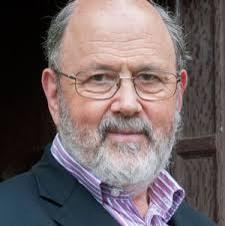
This “renaissance” of Christian scholarship had a trickle-down effect in Ithaca. In 1992, Pastor Dave Jones and Bethel Grove Bible Church began the annual Institute of Biblical Studies (IBS). GCF began hosting “Quest,” an early effort to ask questions relating faith and scholarship. Many Quest meetings were held in the home of then Cornell Professor Merrill Ewert, and involved phone conferences with Christian scholars such as Ron Sider. At the same time, InterVarsity Graduate Faculty Ministries began holding an annual Christian scholars conference that alternated between Ithaca and Syracuse. And in 1996, Karl traveled with fellow graduate student Peter Clark to Yale to hear a Veritas Forum that featured a number of notable Christian scholars (as well as a theologian we had never heard of named N.T. Wright (pictured right).
All of this contributed to the kernel of the idea that is now Chesterton House. Karl, who was working as a program director at Cornell Outdoor Education, shared his interest in starting something new with Jim Crawford ’78 and Dave Jones. Dave referred Karl to Drew Trotter at the Center for Christian Study in Charlottesville, VA. Karl struck up a correspondence with Drew via snail mail and found the materials from the Charlottesville Center an intellectual feast. To paraphrase Cornell co-founder and inaugural president A.D. White’s remarks upon visiting the University of Berlin, the Charlottesville Center was Karl’s “ideal of a [study center] not only realized—but extended and glorified.”
In 1998, Steve Froehlich became pastor of New Life Presbyterian Church. Steve brought a unique talent for leading discussions about film, and immediately became an enthusiastic advocate for starting a study center. In 1999, Christian Anible became InterVarsity’s Graduate / Faculty Ministries director at Cornell. Christian took over managing the annual faculty conference and also supported starting a study center. Also in 1999, Mark Chandler, Director of the Crossroads Life Center, offered the upstairs of the cottage on Buffalo St. for the beginnings of a resource room. Crossroads had a remarkable ministry of hospitality for many years, and Mark envisioned the library as helping to create a L’Abri-esque environment at Crossroads. Given that Karl now had over 1000 volumes for the center in his 400 square foot apartment (in addition to a family of four), the timing was perfect.
Founding Years: 2000-2005
So it was that Chesterton House officially got started in 2000. The idea was to create a center that would make the intellectual resources of the historic Christian faith more accessible to students, including both ancient and contemporary scholarly resources. Karl presented the idea to a group of a dozen pastors, professors, and other community members, half of whom signed on to become founding board members including several of the above-named suspects–Anible, Fay, Froehlich, Gauch, and Jones. Karl, still working full-time at Cornell, served as board president. The first meeting entailed a long discussion of what to call this new creation. For his humor and humility, combined with insightful commentary on virtually all of life and learning, Chesterton was adopted as patron saint of the project. Chesterton is intellectual, but in a broad and interdisciplinary way. Although we didn’t have a house at the time, the ‘house’ in the name was to convey an atmosphere of community and hospitality. We had these things in some measure at Crossroads, but the name Chesterton House was also aspirational–a hope that someday we would have an actual house for more extended and extensive conversation and community.
 In the beginning, then, Chesterton House was a resource room, the contents of which consisted of books contributed by Karl and also by Christian Anible. In the fall of 2000, Chesterton House also began holding its first events, including viewings and discussions of current films such as The Matrix. We also hosted discussion groups based upon periodicals such re:generation Quarterly and Mars Hill Audio. In 2002, following a road trip to hear and meet with Dr. Cal DeWitt at Westminster Seminary with fellow Natural Resources grad students Carolyn Brown, Greg Hitzhusen, and Jamie Skillen, Karl started a local chapter of the AuSable Graduate Fellows program with help from Professor Gary Fick. It was a slow, halting start. Some of these events were attended by five or fewer persons.
In the beginning, then, Chesterton House was a resource room, the contents of which consisted of books contributed by Karl and also by Christian Anible. In the fall of 2000, Chesterton House also began holding its first events, including viewings and discussions of current films such as The Matrix. We also hosted discussion groups based upon periodicals such re:generation Quarterly and Mars Hill Audio. In 2002, following a road trip to hear and meet with Dr. Cal DeWitt at Westminster Seminary with fellow Natural Resources grad students Carolyn Brown, Greg Hitzhusen, and Jamie Skillen, Karl started a local chapter of the AuSable Graduate Fellows program with help from Professor Gary Fick. It was a slow, halting start. Some of these events were attended by five or fewer persons.
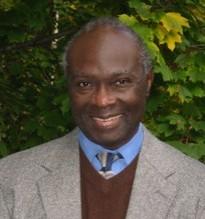
The secret to success, we discovered, was collaboration. We adopted a partnership model of ministry, providing speakers for fellowship retreats and taking movie nights to campus fellowship meetings. Over the years, we have helped to provide content for virtually every Christian fellowship group at Cornell, grad and undergrad. We also worked with churches and fellowships to co-sponsor and boost attendance at various events, including Bethel Grove’s annual IBS, New Life Presbyterian’s bi-annual pastors’ conference, InterVarsity’s faculty conference, and Quest, which became the GCF Roundtable. For the faculty conference, we co-sponsored historian Lamin Sanneh (pictured right), NASA scientist Jennifer Wiseman, and Cornell economist Chris Barrett. For the pastors’ conference, we hosted cultural commentators Ken Myers of Mars Hill Audio, and (in later years) John Wilson of Books & Culture and Denis Haack of Ransom Fellowship. The Roundtable series featured a combination of local graduate students such as Elaine Howard Ecklund, Cornell faculty such as then Dean of the College of Engineering Kent Fuchs, and visiting speakers such as Andy and Catherine Crouch. Attendance boomed. The Roundtables, for example, quickly outgrew the Crossroads Life Center facility and moved to the Big Red Barn and other locations on campus.

Chesterton House’s co-sponsorship of IBS entailed moving the Friday night lecture of this weekend conference onto campus. We didn’t know if anybody would attend, but in 2002, anticipating a good crowd for D.A. Carson’s visit, we reserved the 380-seat auditorium in Anabel Taylor Hall. Every seat filled, as did the aisles and window sills. Now held in Kennedy Hall’s Call Auditorium, the Friday IBS lecture has been drawing similar crowds ever since. We recorded Carson’s lectures, not sure what we would do with them at the time. We later posted the files on the Chesterton House website, where they have been downloaded over 25,000 times! Another particularly well attended lecture was John Polkinghorne’s 2004 talk on science and faith, which drew a diverse crowd of 500 members of the Cornell community.
2005-2010
In 2005, two faculty members put up a $100,000 matching challenge grant, which enabled Karl Johnson to become the full-time director of the ministry. Additional faculty members, including Richard Baer, Martha Stipanuk, and Kathleen Vogel joined the board around this time, and Steve Froehlich took the reigns as board president. Chesterton House became an affiliate member of Cornell United Religious Work (CURW), and began collaborating not only with churches and campus ministries but also with academic departments and other units at Cornell. Crosswalk and ByFaith Magazine both published articles featuring Chesterton House.
Also in 2005, after President Rawlings gave a state of the university address on the topic of intelligent design, Chesterton House quickly convened a panel discussion consisting of three professors and one pastor who provided short papers in response. In subsequent weeks, Professor Fay’s paper was circulated widely among faculty and eventually made its way to President Rawlings’ desk. Rawlings then invited Fay to join him in addressing a group of alumni on the topic of science education and public life. When Rawlings gave an address the following year revisiting some of the same themes, Chesterton House published a response that attempted to help bring clarity to some of the issues he raised.

Years of networking paid off in 2007, which featured a particularly full slate of speakers and events. In April of that year, we worked with CURW to bring in Yale philosopher Nicholas Wolterstorff. Nick preached in Sage Chapel and then provided a day-long faculty conference. He stayed one extra day to meet with the directors of a dozen Christian study centers who came in from all over the country, which led to the founding of the Consortium of Christian Study Centers, headed up by Drew Trotter. (We had Nick with us yet an additional day when he got socked in by a late winter snowstorm). One month later we held a wonderful benefit jazz concert in New York City. Entitled Heaven in a Nightclub, the evening featured philosopher-pianist William Edgar, vocalist Ruth Naomi Floyd, saxophonist Joe Salzano, and Grammy Award winning bassist John Patitucci. “Heaven” was featured in Cornell Alumni Magazine, reviewed in Comment by one of our students, and the CD won an indie music award. In November, Japanese-American artist Mako Fujimura gave a lecture co-sponsored by Art History, Asian Studies, and the Herbert F. Johnson Museum of Art. Later that same month, Chesterton House co-sponsored CURW’s inaugural Robert and Mabel Beggs Lecture on Science, Spirituality and Society. Our speaker was Harvard astronomer and historian of science Owen Gingerich, and he was introduced that evening by Cornell President Emeritus (and Chesterton House friend) Frank H.T. Rhodes.
2007 also brought the sad news of Christian Anible’s cancer. After eight years of service to the Cornell community, Christian passed away in September. God gave Christian a reprieve from his discomfort on the day of Nick Wolterstorff’s visit, which turned out to be the last day he felt well enough to be out all day. In recognition of his sacrifice and service “for Christ and the university” (InterVarsity’s motto), the Heaven CD is dedicated to Christian.
Subsequent years brought yet additional partnerships. In 2008 we co-sponsored astronomer Guy Consolmagno, who gave a great talk on Galileo at Bethe House, one of the west campus program houses. We also hosted renowned philosopher Alvin Plantinga, who addressed faculty in philosophyduring his visit. In 2009 we co-sponsored Lisa Sharon Harper and also Mark Noll with CURW. Noll, whom we successfully nominated for the Frederick C. Wood Lecture, gave a talk on science and religion at the Cornell Club in New York City on a Thursday, filled 300 seats in Call auditorium on Friday afternoon, and then provided a faculty conference on Saturday entitled Jesus Christ and the Life of the Mind. In 2010 Chesterton House worked with the Cornell Catholic Community to bring in philosopher and Chesterton House advisory board member Eleonore Stump for the Colbert Symposium. Also in 2010 Chesterton House again co-sponsored the Beggs Lecture, this time featuring sociologist Elaine Howard Ecklund, now at Rice University.
All of these events led to a somewhat higher profile in the Cornell community and beyond. The dean of Bethe House wrote appreciatively to say “All of us enjoyed Guy Consolmagno’s visit enormously, and I look forward to his return. Thank you for your help in organizing things. The very respectable size of the audience was entirely due to [your co-sponsorship].” After Mark Noll filled 300 seats, a faculty member in history wrote “I am surprised at the size of the audience. It’s very difficult it is to find more than 100 people to attend a lecture.” Faculty in philosophy were similarly appreciative to get some time on Al Plantinga’s itinerary when he was here. Beyond Ithaca, Chesterton House received nods in a book entitled The Two Tasks of a Christian Scholar, and a Wall Street Journal article entitled “Winning Not Just Hearts but Minds.”
2010 - 2014
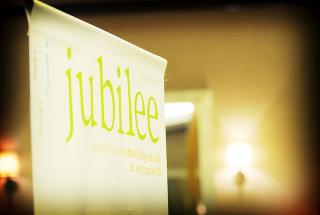 Due to the extraordinary contributions of volunteers to our website, print publications, and many other tasks, Chesterton House often appeared to be a larger organization than it was. In reality, Karl remained the only employee until Fall 2008, at which time a kind benefactor initiated an effort to provide Chesterton House with a second staff person. In August 2008, Justin McGeary became Director of Undergraduate Programs. Justin’s hiring was also a partnership effort, this time with the Coalition for Christian Outreach (CCO) in Pittsburgh. Justin was with us for three short years before heading off to southern California for divinity studies. In addition to being a great part of our community and a mentor to students, Justin helped initiate two enduring projects. During his first year, he recruited an entire busload of students to attend the terrific CCO Jubilee conference in Pittsburgh, an annual habit we have maintained. Even more significantly, he successfully recruited the inaugural group of 18 men to kick off our men’s residential living-learning facility in the fall of 2010.
Due to the extraordinary contributions of volunteers to our website, print publications, and many other tasks, Chesterton House often appeared to be a larger organization than it was. In reality, Karl remained the only employee until Fall 2008, at which time a kind benefactor initiated an effort to provide Chesterton House with a second staff person. In August 2008, Justin McGeary became Director of Undergraduate Programs. Justin’s hiring was also a partnership effort, this time with the Coalition for Christian Outreach (CCO) in Pittsburgh. Justin was with us for three short years before heading off to southern California for divinity studies. In addition to being a great part of our community and a mentor to students, Justin helped initiate two enduring projects. During his first year, he recruited an entire busload of students to attend the terrific CCO Jubilee conference in Pittsburgh, an annual habit we have maintained. Even more significantly, he successfully recruited the inaugural group of 18 men to kick off our men’s residential living-learning facility in the fall of 2010.
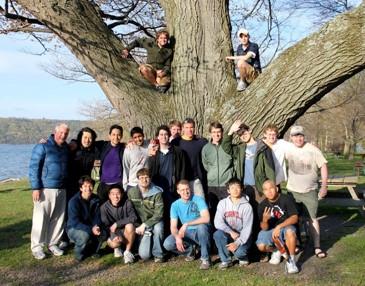 Since the very beginning, the Chesterton House website had stated, “One of our goals is that Chesterton House will soon be a house–a residential living learning center where students can eat, sleep, study, converse, and work out their salvation with one another. Our aim is to secure a fraternity or sorority-type of ‘group home’ with generous common area, large kitchen, and several bedrooms. Having a facility with space for programming and our growing library in the same space that students are living will allow us to better serve larger number of students.” It only took about ten years, but in August 2010 we inhabited a big, historic Tudor Mansion at 115 The Knoll (formerly Delta Phi Epsilon), just a few blocks from campus.
Since the very beginning, the Chesterton House website had stated, “One of our goals is that Chesterton House will soon be a house–a residential living learning center where students can eat, sleep, study, converse, and work out their salvation with one another. Our aim is to secure a fraternity or sorority-type of ‘group home’ with generous common area, large kitchen, and several bedrooms. Having a facility with space for programming and our growing library in the same space that students are living will allow us to better serve larger number of students.” It only took about ten years, but in August 2010 we inhabited a big, historic Tudor Mansion at 115 The Knoll (formerly Delta Phi Epsilon), just a few blocks from campus.
The inaugural group of residents consisted of 18 men, including undergraduate and graduate students, Americans and internationals, Protestants and Catholics. The house functions much like a coop with an optional meal plan on weeknights and a required house dinner on Sundays. Residents do their own meal planning, grocery shopping, cooking, and cleaning. They also open the house to other students for hospitality on holidays such as Thanksgiving and Easter (and Super Bowl Sunday), when as many as 70 students come for dinner. Residents also participate each semester in a service project, yard workday, and a retreat. For the first fall retreat, the men read and discussed Bonhoeffer’s Life Together. For the Winter retreat, we read and discussed Neal Plantinga’s Engaging God’s World. When Plantinga came to deliver the Institute of Biblical Studies in February 2011, residents hosted him for dinner and continued the discussion of his book. The image of a visiting scholar discussing the ideas of a book recently read by the students who prepared dinner perfectly captures the ideal of integrating living and learning that we are after with the residential initiative, and which is in keeping with Cornell’s recent move toward residential living-learning centers.
Plans to start a companion women’s residential facility received a boost from Danielle Lertola ’13. Even before Chesterton House hired a woman on staff, Danielle and her friends rented a house on Thurston Ave. for the 2011-2012 academic year. When Justin departed in summer 2011, resources were reallocated to hire Barb Westin as Director of Undergraduate Ministries, including oversight of the women’s residence (previously called Sophia House). In addition to functioning much like the men’s house with respect to meals and retreats, the two houses now get together for a number of social occasions each year, including a fall bonfire, Christmas party, and an excursion to the Cornell ropes course at the end of the spring semester. Interestingly, just as our original public lecture series coincided with a national movement and interest in Christian scholarship, we embarked on this journey of residential community living amidst a broader turn toward spiritual formation.
In addition to adding the women’s residence, the 2011-2012 year was significant for other reasons as well. In Fall 2011, Chesterton House held the inaugural Alan T. and Linda M. Beimfohr Lecture. A gift of Carl ’76 and Elaine Neuss in honor of their friends Al ’66 and Linda Beimfohr, the lectureship is designed to address issues of faith in a pluralistic society. Beimfohr lecturers have included historian C. John Sommerville, sociologist Felicia Wu Song, World Vision President Richard Stearns ’73, and author/ entrepreneur Joe Holland ’78, MA ’79. Expressing his appreciation for Holland’s lecture on racial justice and revival, Walter LaFeber, the Andrew Tisch and James Tisch Distinguished University Professor Emeritus, said that “The Beimfohr Lectures are among Cornell’s most distinguished campus presentations.”
 Also in Spring 2012, Chesterton House co-sponsored the first ever Veritas Forum at Cornell. Featuring Cornell Professor Emeritus and Nobel Laureate Roald Hoffmann in dialogue with MIT’s Ian Hutchinson, the event was entitled “The Finite and the Infinite: An Atheist and a Christian discuss Nature, Knowledge, and Faith.” All 750 seats in Statler Auditorium filled quickly, many more sat on the floor, and we turned away hundreds at the door! Beginning with the Beimfohr Lectures and the Veritas Forum, we also began video recording lectures, which we hope will help find an even wider audience than ever for these great events. Cornell archives video recordings of the Beimfohr Lectures.
Also in Spring 2012, Chesterton House co-sponsored the first ever Veritas Forum at Cornell. Featuring Cornell Professor Emeritus and Nobel Laureate Roald Hoffmann in dialogue with MIT’s Ian Hutchinson, the event was entitled “The Finite and the Infinite: An Atheist and a Christian discuss Nature, Knowledge, and Faith.” All 750 seats in Statler Auditorium filled quickly, many more sat on the floor, and we turned away hundreds at the door! Beginning with the Beimfohr Lectures and the Veritas Forum, we also began video recording lectures, which we hope will help find an even wider audience than ever for these great events. Cornell archives video recordings of the Beimfohr Lectures.
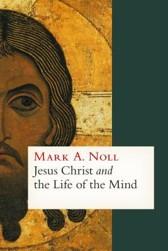 Finally, 2011-2012 brought some additional publicity. The Cornell Chronicle provided a nice feature on the inaugural Beimfohr Lecture. An orthodox Jewish student wrote a very complimentary column about his visit to Chesterton House for dinner. And in his book Jesus Christ and the Life of the Mind, Mark Noll wrote, “Other signs of hope at the pluralistic universities are modest but significant. Local churches and individual denominations maintain Christian study centers at many universities, and some of them are effective. Self-standing centers at Cornell, Illinois, Michigan, Michigan State, Minnesota, Virginia and elsewhere offer encouragement by moving closer to the British and Canadian pattern where identifiably Christian units are embedded in the broader university.” Noll’s book was based upon the lectures he gave as a guest of Chesterton House in 2009.
Finally, 2011-2012 brought some additional publicity. The Cornell Chronicle provided a nice feature on the inaugural Beimfohr Lecture. An orthodox Jewish student wrote a very complimentary column about his visit to Chesterton House for dinner. And in his book Jesus Christ and the Life of the Mind, Mark Noll wrote, “Other signs of hope at the pluralistic universities are modest but significant. Local churches and individual denominations maintain Christian study centers at many universities, and some of them are effective. Self-standing centers at Cornell, Illinois, Michigan, Michigan State, Minnesota, Virginia and elsewhere offer encouragement by moving closer to the British and Canadian pattern where identifiably Christian units are embedded in the broader university.” Noll’s book was based upon the lectures he gave as a guest of Chesterton House in 2009.
The Spring 2012 semester concluded with a magnificent piano concert during study week by Deanna Witkowski. Entitled “Crossing Musical Worlds: An Evening of Jazz, Brazilian, and Classical Music,” the event as co-sponsored by a diverse group of local churches including the Cornell Catholic Community, New Life Presbyterian Church, Protestant Cooperative Ministries, St. Luke’s Lutheran Church, and Trinity Lutheran Church.
As founding board members came to the end of their terms, the board diversified beyond local pastors and professors to include alumni such as Jim Keller ’84 and Kelly O’Neal ’85. Linda Fuchs assumed the role of chair in 2011, and the board promptly crafted the most ambitious strategic plan to date. The planning process, skillfully led by former Cornell Vice President Rich McDaniel, MPA ’74, MBA ’78, identified three goals for the following three years: Redesign the website and all print materials (2012); Begin offering courses for credit (2013); and Purchase one residential facility (2014).
 The plan, which required raising $1,350,000, was completed on time and under budget! The Lilly Endowment provided a $100,000 grant for the courses initiative, which was just one of five grants that Lilly awarded in 2012 for its Campus Ministry Theological Exploration of Vocation program. Combined with support from alumni, these funds enabled the hiring of biblical studies scholar Ryan O’Dowd, who has since developed and taught four courses for students. These courses are also made possibly through a partnership with Gordon College, a premier Christian liberal arts college on Boston’s north shore. “Gordon College is thrilled to partner with Chesterton House in providing coursework that advances Christian thought on all human endeavor,” said Gordon president Michael Lindsay. “I have always been impressed with the ministry of Chesterton House, and all of us at Gordon are thrilled with this opportunity to partner in the Gospel.” Provost Janel Curry adds the following: “Gordon College is delighted to partner with Chesterton House. Like Chesterton House, Gordon strives to awaken and inspire the life of the Christian mind. Because of this shared purpose, we are eager to work collaboratively to deepen the faith and maturity of Chesterton House students. We hope that this will be but the first step in a longer term and multi-faceted relation that goes both directions and involves both faculty and students.”
The plan, which required raising $1,350,000, was completed on time and under budget! The Lilly Endowment provided a $100,000 grant for the courses initiative, which was just one of five grants that Lilly awarded in 2012 for its Campus Ministry Theological Exploration of Vocation program. Combined with support from alumni, these funds enabled the hiring of biblical studies scholar Ryan O’Dowd, who has since developed and taught four courses for students. These courses are also made possibly through a partnership with Gordon College, a premier Christian liberal arts college on Boston’s north shore. “Gordon College is thrilled to partner with Chesterton House in providing coursework that advances Christian thought on all human endeavor,” said Gordon president Michael Lindsay. “I have always been impressed with the ministry of Chesterton House, and all of us at Gordon are thrilled with this opportunity to partner in the Gospel.” Provost Janel Curry adds the following: “Gordon College is delighted to partner with Chesterton House. Like Chesterton House, Gordon strives to awaken and inspire the life of the Christian mind. Because of this shared purpose, we are eager to work collaboratively to deepen the faith and maturity of Chesterton House students. We hope that this will be but the first step in a longer term and multi-faceted relation that goes both directions and involves both faculty and students.”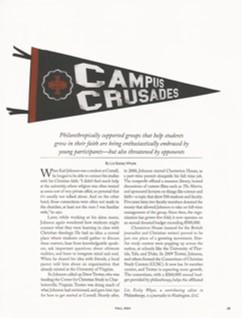
In 2014, Susan ’81 and Greg Gianforte provided a $1,000,000 gift to enable the purchase of 115 The Knoll! We immediately hired longtime Cornell and Ithaca personality Louie Rudin to serve as Property Manager in Residence and began addressing deferred maintenance issues, beginning with the first paint job the house had received in 30 years. A dedication ceremony with students, staff, parents, alumni, and board members was held in November 2014. Needless to say, these gifts and grants represent a new level of commitment to Chesterton House by alumni, parents, and foundations. The Gianfortes’ visionary gift to Chesterton House was featured not only in the Cornell Chronicle, but also in Philanthropy Magazine.
2015 - 2018
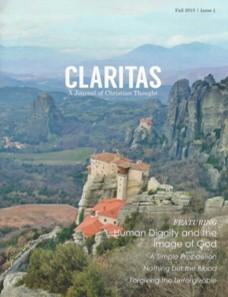
Six months after the facility dedication ceremony, Chesterton House celebrated its 15th anniversary with a wonderful evening event featuring four prominent alumni from the 1970s: Joe Holland ‘78, Carl Neuss ‘76, Dr. Elaine Phillips ‘73, and Richard Stearns ’73. Also in 2015 the ministry launched two significant new initiatives: pre-orientation retreats for incoming freshmen, and a student journal entitled Claritas.
In 2016, despite the year kicking off with a shout-out in the New York Times, the ministry stared down some serious challenges. Louie, whose gift of mentoring made him much more than a property manager, passed away the previous summer. Two of our beloved and most generous alumni supporters also passed away rather suddenly, and occupancy in the residential facilities dropped. At the same time, we lost our office of ten years on north campus. All of this required the ministry to downsize staff and consolidate operations. All the while we were searching, searching, searching for a women’s residential facility to purchase that would be a suitable companion to the men’s facility—without success.
One fateful day in 2016, Karl knocked on the door of the large, historic home perched on the Knoll next to the men’s facility and asked the faculty couple residing there if they would like to sell their home. Yes! But…they would not be retiring for three more semesters. Yet more patience was required. In the end, it took almost that long to secure all the approvals from the various city agencies for zoning changes and renovations necessary to convert the house from a family to student residence.
2018, which turned out to be a banner year, kicked off with the purchase of 111 The Knoll, once the home of Ithaca’s very prominent Treman family. Then the work began. In January, the first bit of furniture was rushed in just in time for Dr. Elaine Phillips ’73 to teach an intensive Old Testament course at the house. For one week students not only studied together but also dined and prayed together—Christian living and learning as we have always envisioned it. Before the semester was out, the ministry hosted its first Senior Recognition Dinner at the new facility. A highlight of the evening was a short talk and performance by Dr. Mia Chung on the new Kawai grand piano, a gift of Carl and Elaine Neuss, who were also in attendance.
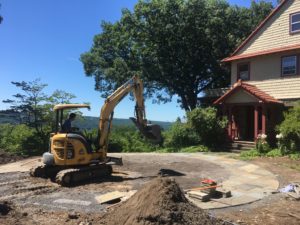 Over the summer, we really tore the place up—new drainage system, new sewer system, two new water mains, new sprinkler system, three new bathrooms, new parking lot and radically new landscaping, complete with patio and lighting. While we were at it, we gutted and replaced the kitchen and the largest of the bathrooms next door at the men’s house. On August 15th, after ten weeks and over $500,000 of work, contractors completed work on the all-new two-acre campus. Students and staff then spent most of the night cleaning and preparing for students to arrive in the morning!
Over the summer, we really tore the place up—new drainage system, new sewer system, two new water mains, new sprinkler system, three new bathrooms, new parking lot and radically new landscaping, complete with patio and lighting. While we were at it, we gutted and replaced the kitchen and the largest of the bathrooms next door at the men’s house. On August 15th, after ten weeks and over $500,000 of work, contractors completed work on the all-new two-acre campus. Students and staff then spent most of the night cleaning and preparing for students to arrive in the morning!
And arrive they did. By noon we were serving lunch to a crowd of about 75 incoming freshmen and family members. At the same time, residents began arriving and moving in. For the first time ever, the ministry provided housing for 35 students (plus two staff) on the Knoll—almost twice the previous high. Within a week, social events were drawing 100 students, and it wasn’t even the least bit crowded.
More quietly but no less significantly, 2018 culminated the process of reconfiguring the staff team. Billy and Nicole Riley began serving as Student Engagement Coordinators and living in the cottage on the Knoll in the fall of 2016. In 2017, Karlee Lillywhite began serving as Design and Communications Manager. And in 2018, Mary Milbrath assumed the role of bookkeeper, and Stevie Lazenby replaced Julie Johnson as Office Manager. Whew! Meanwhile, Fred Barber ’87 relieved Prof. David Williamson of the role of board chair.
2019 & Beyond
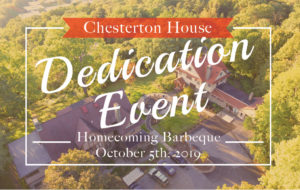 All of the work completed on the new two-acre campus in 2019 and 2020 culminated in THE BIG EVENT—a facility dedication and 20th anniversary weekend in October. We kicked things off with the annual Beimfohr-Neuss Lecture on Thursday evening. On Friday, we held the first-ever Dorothy Sayers Conference on Vocation, capped off by Andy Crouch’s great keynote address in Statler Auditorium that evening. Saturday morning was the facility’s dedication ceremony and BBQ (catered by upstate NY’s favorite—Dinosaur BBQ!). We ate off of brand new Chesterton House frisbees and served 300 lunches. That evening, the final celebration took the form of a concert by Jubilee-favorite singer-songwriter Joy Ike. The celebration also marked the transition of founder, Karl Johnson, out of his role as Executive Director.
All of the work completed on the new two-acre campus in 2019 and 2020 culminated in THE BIG EVENT—a facility dedication and 20th anniversary weekend in October. We kicked things off with the annual Beimfohr-Neuss Lecture on Thursday evening. On Friday, we held the first-ever Dorothy Sayers Conference on Vocation, capped off by Andy Crouch’s great keynote address in Statler Auditorium that evening. Saturday morning was the facility’s dedication ceremony and BBQ (catered by upstate NY’s favorite—Dinosaur BBQ!). We ate off of brand new Chesterton House frisbees and served 300 lunches. That evening, the final celebration took the form of a concert by Jubilee-favorite singer-songwriter Joy Ike. The celebration also marked the transition of founder, Karl Johnson, out of his role as Executive Director.
As Karl began planning for his transition, Vivek Mathew, a Chesterton House course instructor and PhD student in Cornell’s philosophy department was becoming more acquainted with Chesterton House and the particularities of Christian study centers. During the search process for a new director it became clear that Vivek possessed the intellectual loves, business skills, and the pastoral spirit necessary to make an excellent Executive Director. It became so in November of 2019.
Originally from Defiance, Ohio, Vivek completed his undergraduate degree in Computer Science at Princeton, after which he worked for almost ten years on Wall Street with a quantitative trading team at Morgan Stanley. He was an active member of Redeemer Presbyterian Church (Tim Keller’s church), where he met his wife, Jeanie. Vivek completed his M.Div. at Princeton Theological Seminary, followed by a masters in Philosophy (B.Phil) at Oxford University. In 2013, Vivek and Jeanie moved to Ithaca so he could pursue a Ph.D. in Philosophy at Cornell, focusing on metaphysics, philosophy of science, and philosophy of language. He and Jeanie, who now have three young children, are members of Bread of Life Anglican Church in Ithaca.
Alumni and parents are increasingly active partners in the work of Chesterton House, supporting the ministry with prayer, volunteer service, and financial giving. As with the residential campus, we invite alumni and parents to dream and pray with us about future possibilities. In 2020, for example, we anticipate inaugurating a substantial faculty roundtable series. The board is also assessing an investment in graduate student ministries, including service to students on the Cornell Tech campus. Not least of all, we continue to research the possibilities for a day-use facility to provide classrooms, office space, and a library.
We thank you for your support and partnership. To see our growing list of supporters and the specific projects they help make happen, please see the ministry’s most recent annual report.
By the grace of God, Chesterton House continues to serve students and scholars in the cause of sustaining Christian presence at Cornell. Andy Crouch puts it this way:
“A few blocks from campus, in a building that is as comfortable as Sage Chapel is grand, something remarkable is happening. Students, faculty, and other members of the Cornell community are learning, thinking, praying, and growing together both as scholars and as disciples of Christ. They are using their minds and their hearts to engage ultimate questions—the questions universities have always asked but increasingly cannot answer. I suspect few Christians have ever found much satisfaction in the pervasive ‘atheistic evidence’ at Cornell. Rather, our ‘daily nourishment’ comes from finding evidence of faith—faith that is deep enough to flourish in the places you might least expect it. To those for whom such faith is both nourishing and encouraging, Chesterton House is a marvelous feast.”
In good academic fashion, we try not to hype or oversell. This, however, you must check out.
Dr. William Edgar has been presenting “Heaven in a Nightclub”–an evening concert/lecture on the history of jazz–for years. In 2007, as a benefit concert for Chesterton House, pianist and philosopher Edgar performed with a stellar group of special guests, including vocalist Ruth Naomi Floyd, saxophonist Joe Salzano, and Grammy Award winning bassist John Patitucci. For the first time, a professional recording of “Heaven in a Nightclub” is now available.
You can read more about the concert and, much better still, listen to two minutes of each track at CDBaby.com. If you would like the complete concert experience, audio tracks of Andy Crouch’s introduction and intermission talk (not on the CD) are available here:
Do listen to the free audio excerpts on CDBaby–we are confident that you will not be disappointed. The double CD runs $24.99. It’s worth every penny, and all proceeds go to support the work of the Chesterton House ministry.
